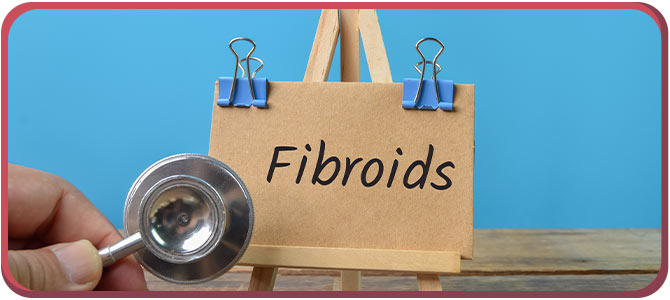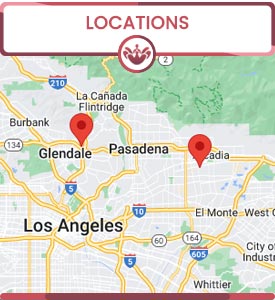How Do Fibroids Affect Women’s Health?
Fibroids are noncancerous growths in the uterus that can cause a range of health issues for women, including heavy menstrual bleeding, pelvic pain, and pressure on the bladder or bowel. These symptoms can lead to significant discomfort and may impact fertility, necessitating medical intervention in some cases. Dr. Prema Kothandaraman offers fibroids treatment at The Ob-GYN & Incontinence Center. For more information, contact us today or book an appointment online. We have convenient locations to serve you in Arcadia, and Glendale, CA.




Table of Contents:
What happens if fibroids go untreated?
What do fibroids do to a woman’s body?
Can uterine fibroids cause other health problems?
When should fibroids be removed?
Fibroids are noncancerous growths that develop in or around the uterus and can significantly impact women’s health. These benign tumors, also known as leiomyomas or myomas, vary in size and number, and their presence can lead to a range of symptoms, including heavy menstrual bleeding, pelvic pain, and reproductive issues. Understanding how fibroids affect women’s well-being is crucial, as they are a common condition that can disrupt daily life and overall health.
If fibroids go untreated, they can cause a variety of complications that may progressively worsen over time. One of the most common issues is severe and chronic pain, which can range from pelvic discomfort to severe cramps during menstruation. Untreated fibroids can also cause heavy menstrual bleeding, leading to anemia and fatigue due to significant blood loss. Additionally, fertility problems may arise, making it difficult for women to conceive or maintain a pregnancy. In some cases, fibroids can grow to a size that causes pressure on the bladder or bowel, resulting in frequent urination or constipation. Furthermore, large fibroids may cause abdominal distension or create a noticeable lump, affecting a woman’s physical appearance and comfort. Though noncancerous, the persistent symptoms and potential complications underscore the importance of seeking medical advice for appropriate management and treatment options.
Fibroids can have a profound impact on a woman’s body, affecting multiple aspects of her physical and reproductive health. As these benign tumors grow within or around the uterus, they can exert pressure on surrounding organs, resulting in a range of symptoms. For instance, fibroids can press against the bladder, causing frequent urination or even urinary retention. When pressuring the rectum, they may lead to constipation or difficulty with bowel movements.
Hormonal fluctuations associated with fibroids often result in heavy and prolonged menstrual periods, which can lead to chronic anemia and fatigue. Additionally, fibroids can interfere with fertility by obstructing the fallopian tubes or altering the shape of the uterine cavity, making implantation of an embryo more challenging. Large fibroids can cause noticeable abdominal swelling, mimicking pregnancy or weight gain, and affecting a woman’s self-esteem and comfort. The persistent discomfort and potential health risks underscore the importance of early detection and management to mitigate the impact on a woman’s overall well-being.
Yes, uterine fibroids can indeed lead to additional health problems beyond the commonly known symptoms. One significant concern is the elevated risk of anemia due to heavy menstrual bleeding, which can leave women feeling exhausted and weaken their immune responses. Another health issue linked to fibroids is their potential to cause complications during pregnancy, such as an increased likelihood of cesarean delivery, preterm birth, or placental abruption, where the placenta detaches from the uterus prematurely. Chronic pelvic pain caused by fibroids can also lead to heightened stress and anxiety, contributing to emotional and mental health challenges. Moreover, the size and location of fibroids can create additional pressure on adjacent organs, such as the bladder and bowels, resulting in frequent urination, difficulty urinating, or gastrointestinal issues like bloating and constipation. The persistent nature of these problems highlights the importance of ongoing medical monitoring and potential intervention to alleviate symptoms and prevent further health complications.
The decision to remove fibroids hinges on a variety of factors, primarily the severity and nature of the symptoms they cause. Fibroids should be considered for removal when they lead to significant pain, heavy menstrual bleeding that results in anemia, or when they contribute to infertility or recurrent pregnancy loss. Additionally, fibroids that cause pressure-related symptoms, such as frequent urination, constipation, or bowel obstruction due to their size or location, also warrant surgical intervention. In cases where fibroids are rapidly growing or show suspicious features on imaging studies, removal is essential to rule out malignancy and prevent further complications.
Moreover, if fibroids are causing noticeable physical changes, such as abdominal distension or a palpable mass, and impacting a woman’s quality of life and self-esteem, surgical options should be explored. Ultimately, the decision to remove fibroids should be made in consultation with our healthcare providers, considering the individual’s specific symptoms, overall health, reproductive plans, and the potential benefits and risks of surgery.
If you’re experiencing any symptoms or complications due to fibroids, it is crucial not to ignore them. Timely consultation with a healthcare provider can help in diagnosing the issue accurately and determining the most appropriate treatment plan tailored to your specific needs. To discuss your symptoms and explore your treatment options, contact us or book an appointment online. Our dedicated team of specialists is here to support you on your journey to better health and well-being. We have convenient locations to serve you in Arcadia, and Glendale, CA. We serve patients from Arcadia CA, Glendale CA, Monrovia CA, Pasadena CA, Los Angeles CA, Burbank CA, and surrounding areas.


Additional Services You May Need
▸ Urogynecology
▸ Minimally Invasive Gynecology
▸ Monalisa & Medical Aesthetics
▸ Bioidentical Hormone Replacement Therapy
▸ Urinary Incontinence
▸ Pelvic Organ Prolapse
▸ Painful Bladder
▸ Urinary Tract Infection
▸ Genitourinary Syndrome of Menopause
▸ Female Sexual Dysfunction
▸ Urinary Retention
▸ Vaginal Laxity & Prolapse
▸ Postpartum Pelvic Floor Problems
▸ PCOD
▸ Bladder Prolapse Repair
▸ Urgent PC
▸ Fibroids
▸ Excessive Bleeding
▸ Pelvic Pain
▸ Birth Control & IUD
▸ Vaginal & Pelvic Infection
▸ Monalisa Touch
▸ STD
▸ TempsureVitalia
▸ Biote Pellet Therapy
▸ Topical BHRT
▸ Flexsure
▸ Rectal Prolapse Repair
▸ Tempsure ENVI
▸ Minimally Invasive Pelvic Surgery for Incontinence



